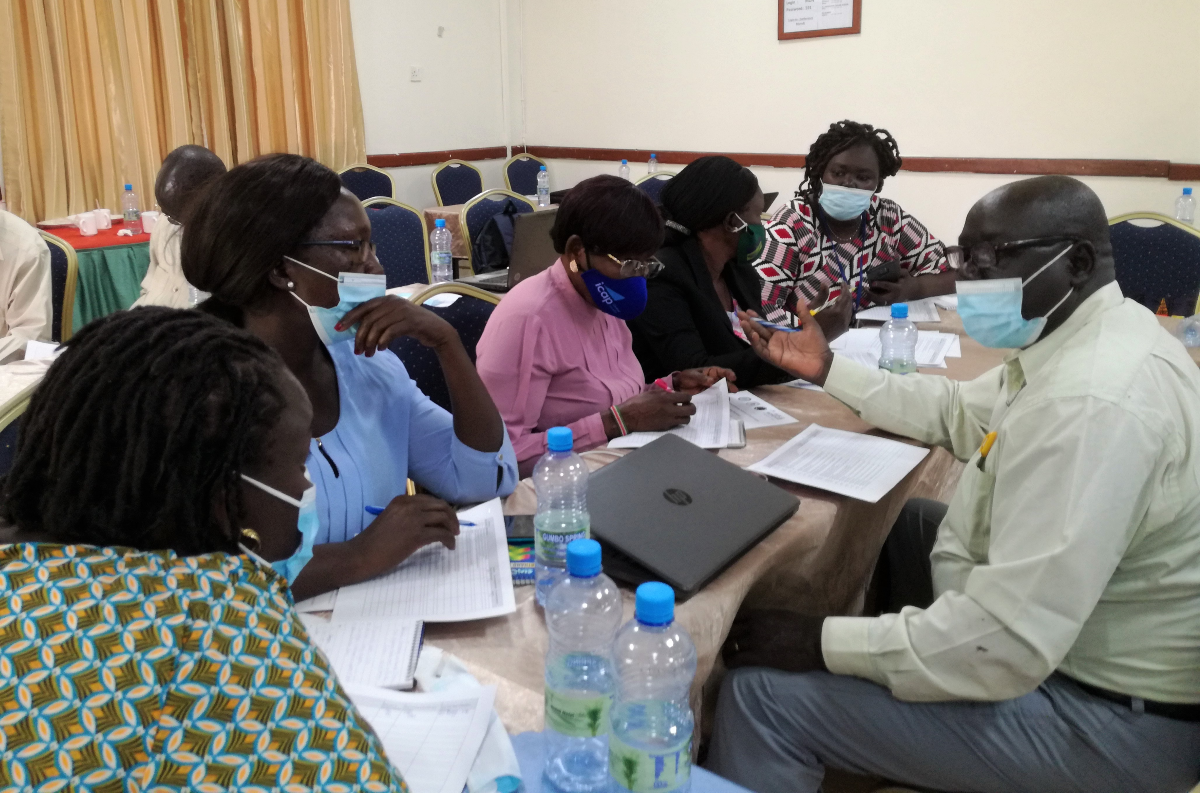UN Women expands its work in gender statistics in South Sudan
Date:
“Gender data presents evidence that provides an opportunity to change gender norms that often make women and girls more vulnerable”.
UN Women has been expanding its work in gender statistics in South Sudan. An assessment of the gender statistics system was conducted between August 2021 and January 2022 to identify data and capacity gaps and potential opportunities to strengthen gender statistics systems. The assessment demonstrates a need to prioritize disaggregated data collection to ensure intersectional, inclusive, and evidence-based interventions.
“There is a shortfall of data and statistics in South Sudan and a deep need for a gendered analysis of data, that is sex, age and disability disaggregated”, says UN Women South Sudan’s programme specialist Alinane Kamlongera. Finding data that is disaggregated at all levels is difficult in South Sudan. One way of ensuring that decision-makers consider gender dimensions in their interventions is by collecting data that can be disaggregated and then doing a gendered analysis.
Sex, age, and gender disaggregated data is critical, particularly in the context of equipping policymakers to adequately assess certain situations and develop appropriate evidence-based responses and policies. “When it comes to research, particular needs of girls and women are not always prioritized, and research often favours men. Collecting gender data presents an opportunity to change gender norms that often make women and girls more vulnerable” continues programme specialist Kamlongera. Women, girls, boys, and men are affected by, for example, gender-based violence in different ways and are also exposed to different risks in South Sudan and this makes it important to understand intersectionality.
There is a need to obtain a good understanding of the situation and context in which we are applying policies and interventions. “Interventions can only be as good as the data we are using, and they need to clearly state who will receive what, and why”, notes Kamlongera.

A validation workshop to review and endorse the preliminary findings of UN Women’s assessment was held on 15 February in Juba, South Sudan. The workshop drew participants from line Ministries, diplomatic missions, UN agencies, NBS, gender advisors and focal points from various departments, and civil society organizations. Various group activities were undertaken to further expand our understanding of the gender data and capacity gaps in South Sudan. The next step will be to integrate the inputs received from the workshop into the assessment report.
This initiative forms part of the UN Women global flagship programme entitled Making Every Woman and Girl Count, initiated in 2017. The programme builds on UN Women’s unique normative, policy, programmatic and coordination mandates, the programme aims to address three distinct but interrelated challenges including: creating an enabling environment, increasing data production, and improving data accessibility.